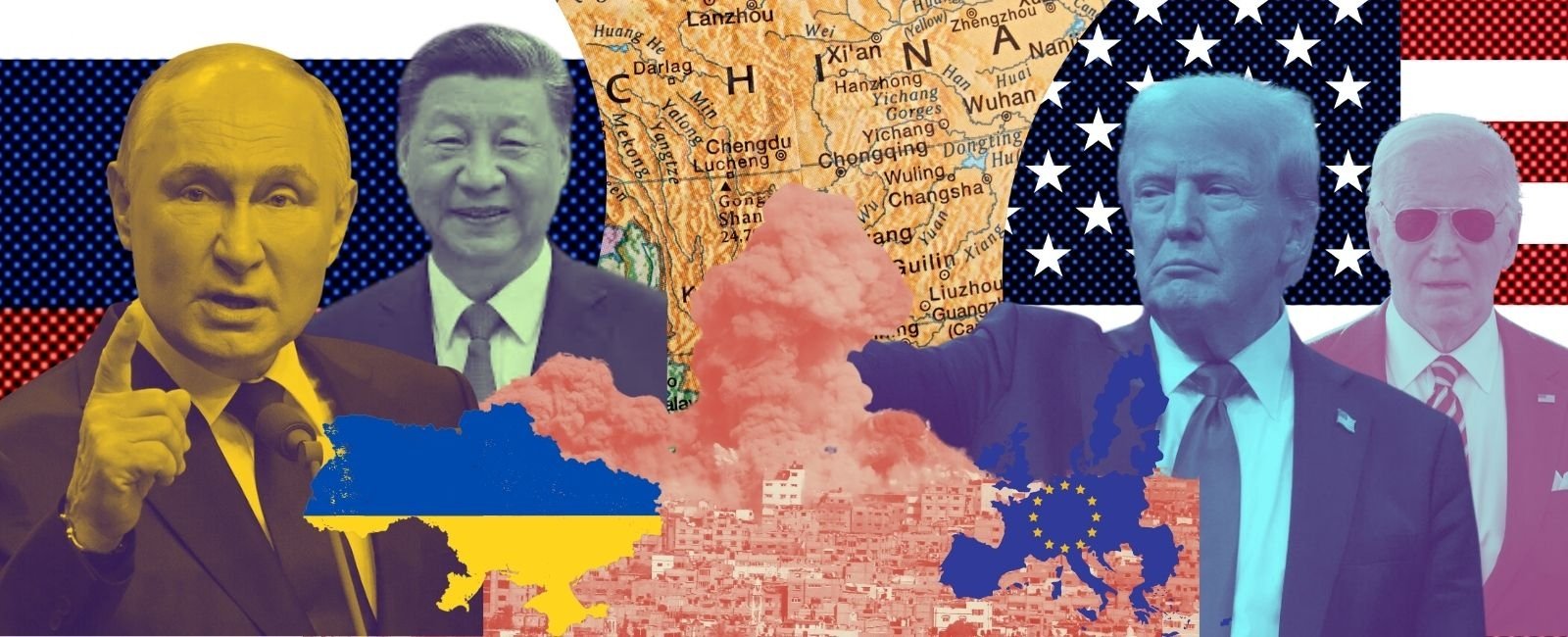Is rise of multipolarity reshaping global order and redefining power dynamics?
With changing power dynamics, one questions if cycles of structural change are recalibrations of global order or are these enforced upon international order

A shakeup of the international world order is underway. The liberal, free, rules-based Western order is repeatedly challenged by resurrecting powers and emerging powers, recalibrating the existing unipolar system. Are these shifts in global political tectonic plates being reset? If so, will the reset lead to widespread conflicts, or is it a natural recalibration of the international political order?
To assess the tremors felt on the political Richter scale, Big Picture speaks to academics to determine if the rising multipolarity and weakening of once-dominant multilateral institutions are paving the route for a watershed moment in history.
'A world at war'
According to the Uppsala Conflict Data Programme, the past two years have witnessed more war and conflict than any two years since the end of the Second World War, said Dr Paul Poast, Deputy Dean of Doctoral Education, Social Science Division and Associate Professor, Department of Political Science at the University of Chicago (UChicago). Referring to his piece published last year in the Atlantic, titled "Not a World War But a World at War", Dr Poast feels that the world is exiting the Pax Americana, and the rising conflicts are a product of that.
"There used to be a single hegemon who maintained world order and, as a result, kept a lid on all these conflicts, and that is disappearing. There is a big question about the extent to which the Pax Americana was, indeed Pax – truly peaceful. Still, the movement of the world away from a unipolar moment more towards multipolarity is having an effect. I believe that the conflicts we’re seeing in the world are a product of that directly and indirectly."
Talking about the direct impact of unipolarity fading and the resurrection of major powers like Russia, Dr Poast highlights the identity of a great power being great is to "dominate the region, and that means dominating Ukraine. So that is one way in which the re-emergence of great power has led directly to this conflict, but there are also indirect ways, and this is very well captured by a phrase I've heard others use, which is 'great power competition leads to great power distraction'".
With major powers too distracted to counter each other, Dr Poast stresses that the powers are not dedicated enough to put the diplomatic work that would typically have been put into trying to control conflicts.
"You can see this in the case of Armenia and Azerbaijan, for example. When their conflict started to renew, it was partly because the US was not in the same diplomatic position; Russia, who would typically try to rectify the conflict, was distracted by the war in Ukraine or looking in the Middle East.
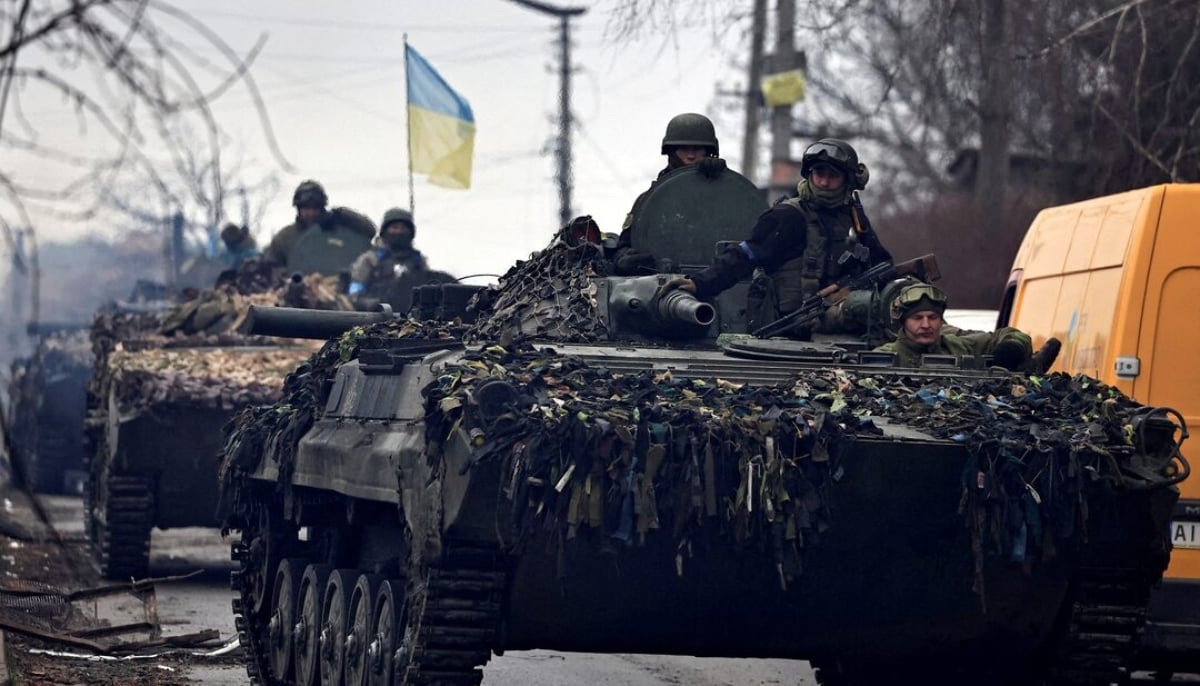
"After all, it is busy with everything else going on in the world trying to counter Russia, worrying about China and East Asia that it may not be putting in the same type of diplomatic work that would be necessary to have either prevent October 7, 2023, or have more directly steered, say Israel’s policy since October last year; and this is another way we see great power competition feeding into great power distraction."
A unipolar or multipolar world?
In a world with current shifts in global power dynamics and the rise of multipolarity, does this signal a more stable international order, or does it trigger competition and conflict among emerging powers?
"The United States, both militarily and economically, remains the world's sole superpower. It is still a unipolar world. China, however, is rising as a near-peer, and Russia is growing increasingly assertive. Neither of them, however, can match the US in GDP or defense spending,” said Dr Kenneth Holland, the Chief of Party of the USAID higher education project in Pakistan — Higher Education System Strengthening Activity (HESSA) and a Political Scientist from UChicago, unequivocally.
However, Dr Naeem Ahmed, Chairperson of the Department of International Relations at the University of Karachi (KU), disagrees with the idea of the world being unipolar. "The world has moved towards multipolarity in the last few decades, and different power centers are emerging, like Shanghai Cooperation Organisation (SCO), Association of Southeast Asian Nations (ASEAN), and BRICS – this is not a unipolar world, and this is now becoming evident."
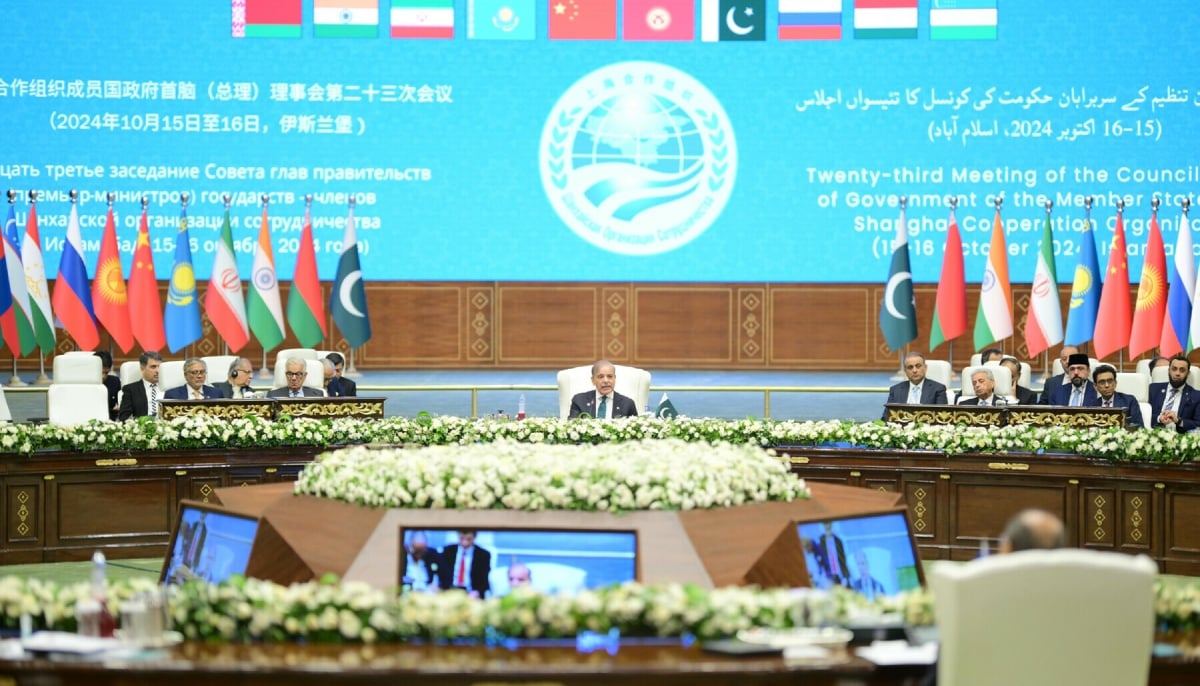
Does this give rise to a more stable world? Dr Ahmed, shares from the Cold War era, stating, "During the Cold War, there were two superpowers. The international political system was controlled and, I would say, hijacked by those two superpowers. According to neorealists, a bipolar international political order was stable. (A multipolar system with) more actors give rise to a probability of conflicts and competition because there are more power centres, each with its interests, thus making it difficult for a stable international order to be established."
He further specifies that the nature of the global political order also matters – whether political, strategic or economic. "So far, we’ve seen that the economic international order is multipolar and is even going towards multipolarity, in which we see BRICS, ASEAN, and the European Union (EU). However, if we look at the strategic or political context, it is bilateral in the making, where China is rising. China is challenging the hegemony of the US in the international order with SCO as an example," shares Dr Ahmed, for whom a multipolar global order will feature more competition, a breaking reality in the contemporary system.
When asked about the evolving relationships between great powers like the US, China, Russia, and the EU, will their competition lead to more strategic confrontations or a new form of cooperative global governance?
Dr Holland, a Political Scientist from UChicago, said, "Two competing blocs are emerging — one led by the United States and one by China. While the G7 countries are united in their opposition to Russian and Chinese aggression, the budding alliance between Russia and China is burdened by conflicting interests, including which great power should dominate Central Asia. There is no Second Cold War, since the Chinese and American economies are interdependent."
A unipolar world with weakening multilateralism?
Multilateral institutions like the United Nations (UN), the World Trade Organisation (WTO), and the International Monetary Fund (IMF) once played a pivotal role in maintaining global stability. But are they still relevant in a fragmented world?
“Because two of the five permanent members of the UN Security Council, Russia and China, possess the veto, the United Nations plays a diminished role in a world marked by efforts of revisionist powers, such as China and Russia, to challenge the American-led rules-based, liberal international order. China and Russia have not yet developed institutions capable of challenging the dominance of the IMF and World Bank in fighting global poverty. The alienation of the United States has weakened the WTO, and protectionism is rising. China is the major beneficiary of the WTO's trade-favouring rules and has the most to lose from the weakening of the organisation,” said Dr Holland, a political scientist from UChicago.
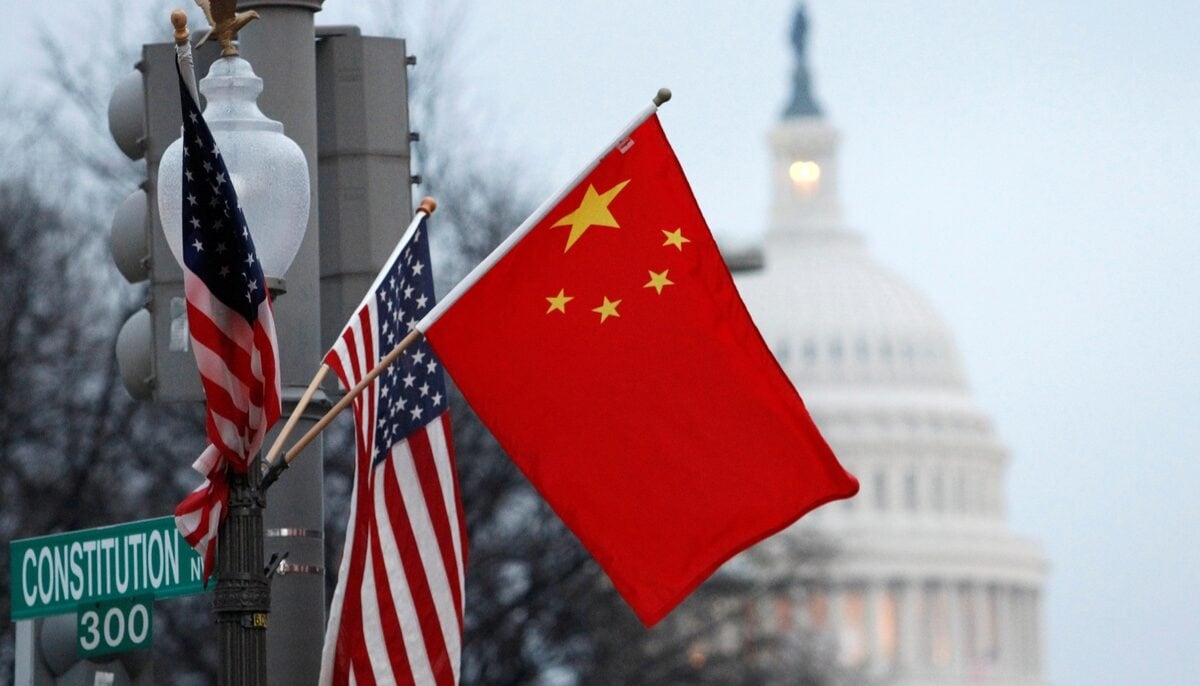
With the changing dynamics of the global order today, the role those multilateral institutions once played now is different as compared to the role they played during and post-Cold War, said Dr Ahmed, Chairperson, Department of International Relations at KU, drawing attention to the joint communiqué of the 23rd Meeting of the Council of Heads of Government of Member States of the SCO.
"The joint communique of SCO opposes protectionist actions, unilateral sanctions and trade restrictions that undermine the multilateral trading system and global sustainable development. The SCO members denounce the developed world’s protectionist actions against WTO’s free trade regulations. If the developed world or the West keeps protecting their markets while capturing others’ markets, that may not be acceptable,” he stresses on the voices of dissent that are rising against these institutions and the need for these organisations to redefine their role.
What of the UN? Especially with all sceptics raising fingers at it for the organisation’s inability to achieve a ceasefire in Gaza even after more than a year of the Israeli onslaught on Gaza.
"Criticising the UN as ineffective because of conflicts like Ukraine and Gaza is, in my view, a misunderstanding of the mission of the UN," said Dr Poast, Deputy Dean of Doctoral Education from UChicago.
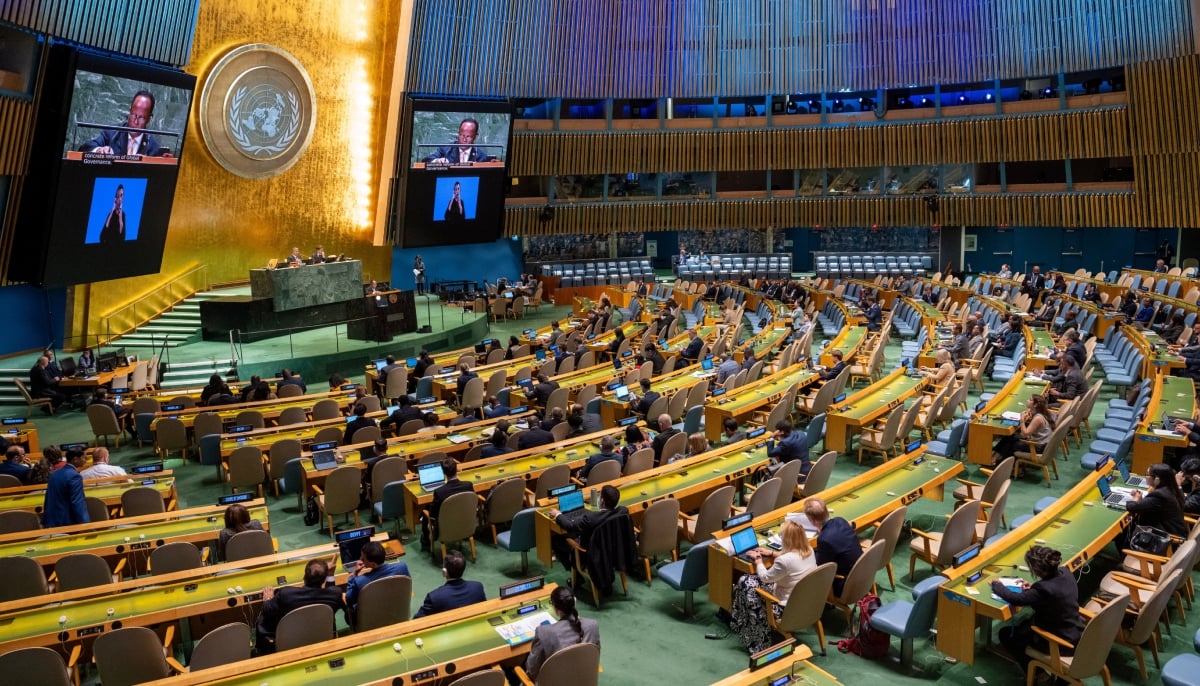
He added: "The UN was created to prevent World War III between the great powers FULL STOP. It’s not going to avoid all conflicts, and it's not going to prevent a great power from conducting war. It’s not going to stop a war in Ukraine just like it didn’t stop the US from invading Iraq – that’s not its point. Its purpose was to prevent Russia and the US from fighting each other and to prevent China and the US from fighting each other by creating a forum for diplomatic dialogue by ensuring there is communication between the major powers because one of the concerns going into WWII was that these forums for the dialogue in the League of Nations largely failed.
If that’s how you understand the UN, you can say it has been successful in that purpose, but it has not been able to achieve many other things that are typically assigned to it."
Understanding the cycles of polarity
The cycles of structural change in the international system that the world experiences — referring to recent history from a bipolar world to a unipolar one and now a world entering multipolarity, are these cycles recalibrations of the global order that somehow happen, or are these enforced upon the international order?
Elaborating on the global political tectonic shifts, Dr Poast refers to Robert Gilpin’s book War and Change in International Politics, published in the early 1980s.
"Gilpin writes about the inevitable rise and fall of great powers. He calls it the law of uneven growth, which is that there is not a situation where everybody is going to grow and develop at the same time and in the same way; instead, there will be some countries that will rise and become more powerful, and others are going to go through economic decline," he said.
Gilpin, Dr Poast added, calls it the law of economic growth. "He writes that, as per our understanding of macroeconomic processes and economic development, we could go on about capital / higher returns and how that leads to differential rates of economic development."
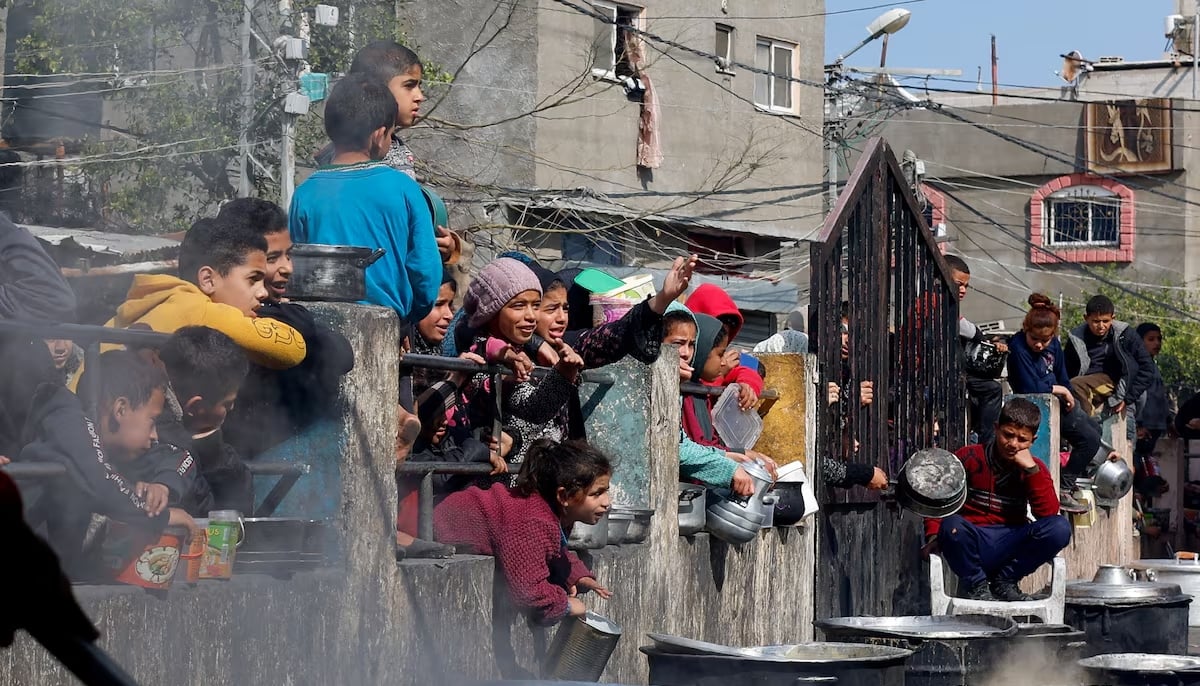
Dr Poast underscores the overall punchline of Gilpin’s book, stating that these ebbs and flows are inevitable. "If you find yourself in a unipolar world, you can’t expect that to stay because, inevitably, other countries will grow. You are going to relatively decline to where you are going to enter into a new system that is going to be multipolar."
He added that this doesn’t mean it is an even multipolarity; it can still be an uneven multipolarity, but the question of having great powers is not that they’re all the same; it’s just that they’re a group of countries that have crossed a certain threshold — size, economic and military power that puts them in a position to shape world politics.
One of those countries, according to Dr Poast, might be bigger than the other; they’re not all going to be the same size, but they’re all kind of in that same tier — and the Gilpin argument seems to point out that it’s tough for one country just to be the only one in that tier.
"There are going to be countries that will gradually come in and out of that tier, and what we’re in right now is a system; we’re in a state of time where we’re seeing a shift of countries going back into that tier in that leads to all the dynamics that we’ve been talking about," he said.
Mariam Khan is a freelance journalist and a UN volunteer. She tweets @mariaamkahn
Header and thumbnail illustration by Geo.tv



